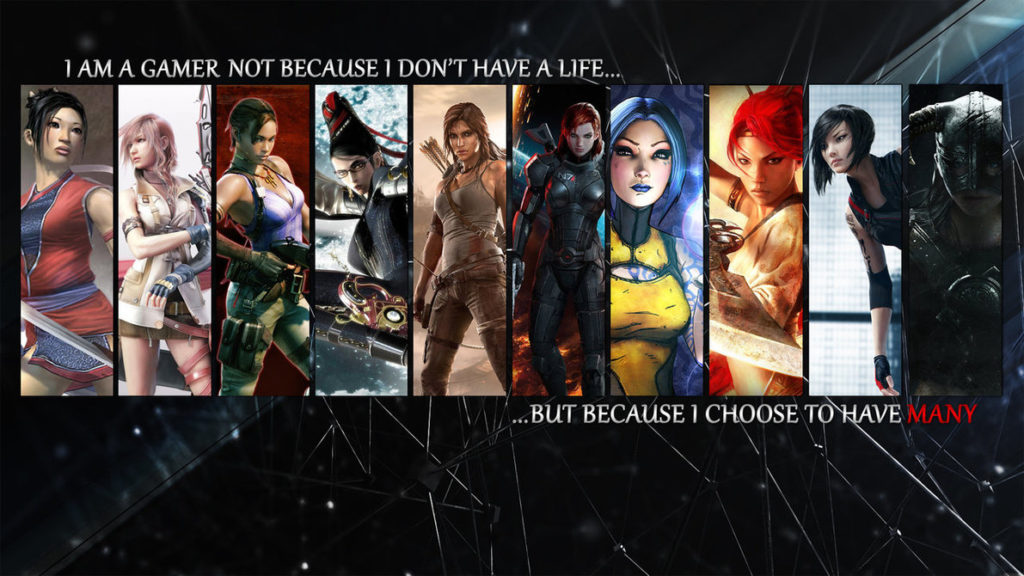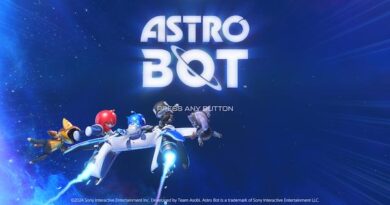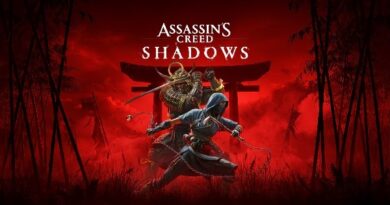Summer Musings of a Growing Gamer-Girl
Another piece from our resident guest writer, Nina. Musing on how games have impacted her in recent years. Enjoy.
Video games have been a part of my life ever since I was a kid. Dad talks about his Atari 2600 and Sega Master System days with such fondness. But my formative years of gaming are occurring now. I remember, as a young child, watching in awe as my Dad played games like Bastion, Mass Effect and Halo and I could not help but be enthralled by the characters and grandeur of the experiences. Now I have had the chance to grow as a gamer, I have my own experiences to reflect upon.
I can say that gaming has had a massive impact on my life over the last few years, and it is one of my most favorite things in the world. I am not alone, as ‘we’ the next generation of gamers are spoiled for choice, as many of us understand very early on, games aren’t just time wasters anymore. They are complex, visually stunning and (most of the time) beautifully written works of art that tell stories, build characters and create worlds that players can enjoy and experience through their avatar of choice.
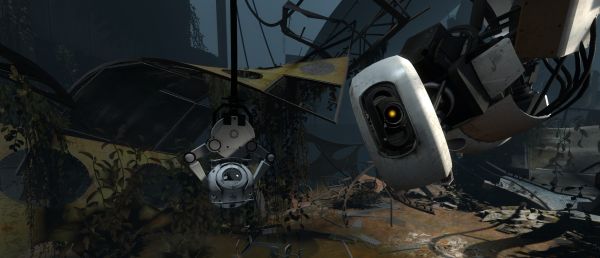
Now, I could make this article an in-depth analysis of how video games do this and why they can be so emotionally engaging, but I want to do something a bit different.
Yes, I want to shine some light on the power of video games, but I want to do that using my personal experiences rather than some lengthy analysis. I want to highlight the power of video games using their impacts on ‘me’. So, with that all said, ready to hear me spill my gamer-girl guts? Here we go…
Portal 2 was the first video game to make me cry. It wasn’t because it was sad, in fact, I don’t think Valve ever intended for anyone to cry during Portal 2. But, there was one scene that was just so beautiful and perfect, I couldn’t help but shed a few tears.
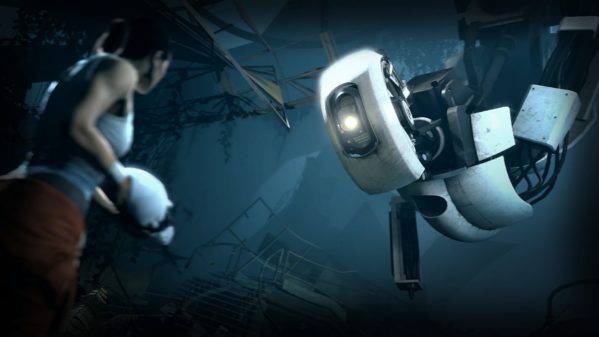
The scene in question is the Turret Opera at the end of the game, where, after defeating the final boss and being freed by GLaDOS, Chell’s elevator ascends into an enormous auditorium filled with hundreds of turrets. Then, the turrets begin to sing. They sing the opera Cara Mia Addio, which is a mother’s goodbye to her daughter.
This opera was GLaDOS, using her turrets, saying goodbye to Chell, the one person she said herself was her best friend. This was a really beautiful way to end Portal 2, because, throughout the game you see a close bond begin to emerge between GLaDOS and Chell, but GLaDOS being GLaDOS, she would always dismiss it in her typical fashion. But this scene, it proved that despite everything GLaDOS said and did to Chell, she really did care about her and was truly saddened to see her only friend leave her.
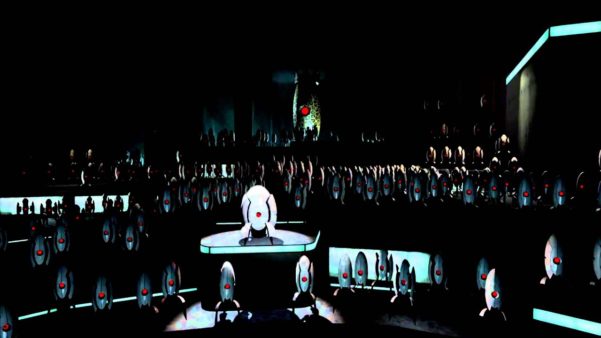
To put it simply, Portal 2’s story was all about friendships; building them, destroying them and rediscovering them, and it’s ending brought all of this to a head. Part of me also thinks that the turret opera could also be interpreted as the Portal development team saying goodbye to the gaming community, which just makes this scene even more powerful.
The next game I wanted to discuss is Hellblade: Senua’s Sacrifice, and all I can say to open this is that Hellblade is… amazing. It is more a work of playable art with an actual plot. The game tells the story of a Celtic Warrior named Senua who is embroiled in a deep, dark psychosis, but still quests to save the soul of her lover from Hell.
It is impossible to tell the story of Hellblade and give it justice, but I can say it is a story of love, deepest grief and overcoming ones demons. Most people focus on the game’s realistic portrayal of psychosis, from the voices, to the hallucinations, but the thing that really tugged at my emotions was how the game ended.

Throughout the game, Senua is fueled by the belief that her psychosis is a curse from the Gods and that Dillion, her husband, was killed by Hela (Goddess of Death). However, at the end of the game, Senua learns the truth about herself and her world. She was never cursed by the gods, there was never a Hela fighting against her; she was only fighting against her own, tortured mind. And since there is no Hela and no Hell, she learns that she cannot bring Dillion back.
This ending sounds like it should be purely depressing, but it is surprisingly bittersweet. Seeing Senua break down after learning that she can’t bring her love back is heart-wrenching, but then she has a realisation. Death is just part of life, and if one dwells too much on death, then they become trapped in its shadow. The only way to be free of that is to embrace death as part of life, and then you will be free of its shadow.
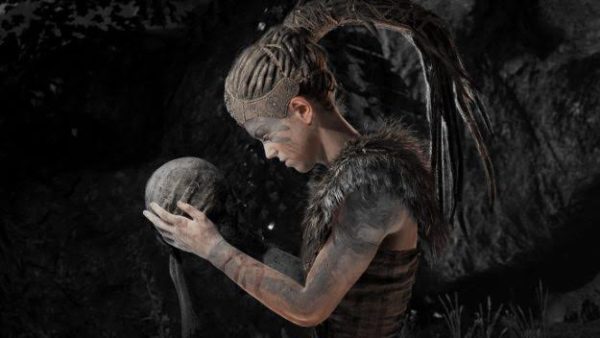
If Senua was to carry on, she had to let Dillion go. And she did. Hellblade goes from a warrior’s quest to save her lover’s soul from Hell, to a story of a young tortured woman learning about herself, her world and her beliefs. It is a truly beautiful story and one that I think everyone, psychosis sufferer or not, can take something away from. It isn’t just a story about Senua’s struggle with psychosis, it is also a story about Senua’s struggle with her beliefs and understanding of herself and the world around her.
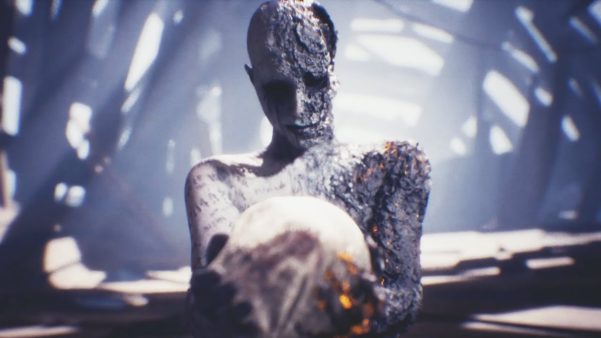
The final game I wanted to talk about is probably my absolute favorite of all time: Halo Reach. And since it’s my absolute favorite game of all time, its section is going to be a bit longer than the others. So, here we go…
Halo Reach is the prequel to the original Halo trilogy and centers on a team of Spartans called Noble Team during the famed fall of planet Reach. If anyone knows anything about Halo lore, then you’ll know that the Fall of Reach was one of humanity’s darkest moments, as Reach was our most powerful military planet and mankinds last defense against the Covenant locating and attacking Earth.
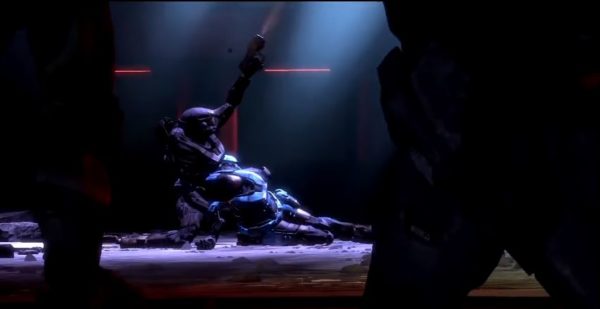
Now, the thing that I think makes this game so impactful is that you already know how the story ends. You know that Reach eventually falls. You know that in the end, the heroes of the story loose the fight. And with all that in mind, you can make a pretty educated guess that Noble team, for all their battle finesse and charisma, will ultimately perish, and it is an ongoing sobering thought.
Every victorious moment in the game is overshadowed by that knowledge in the back of your mind that says, none of this matters because Reach will fall, regardless of what you do. It is all hopeless, and that was something that I found new to Halo. All the games before Reach were about hope, not hopelessness. So, what was Bungie trying to achieve here?
The answers, for me at least, lied in the ‘Deliver Hope’ trailer for Halo Reach (below) and most of all its tagline: Remember Reach.
And then, it all made sense. The Halo games leading up to Reach were about humanity’s final hope, the Master Chief, saving humanity, and the games showed that it is possible to find hope in the hopeless. But Halo Reach wasn’t about that. Reach was about remembering that, despite having all of the hope in the world, sometimes a situation really is hopeless.
As I said earlier, you know that despite the best efforts of Noble and despite the hope that these Spartans maintain throughout all the loss and defeat, Reach will fall. In short, what makes Halo Reach so special, in my opinion at least, is that rather than being a story about finding hope in the impossible, it is a reminder to fans that not everyone in the Halo universe was as lucky as the ‘lucky John 117’. It helped fans remember the sacrifices made during one of humanity’s darkest times. It asks fans to remember Reach.
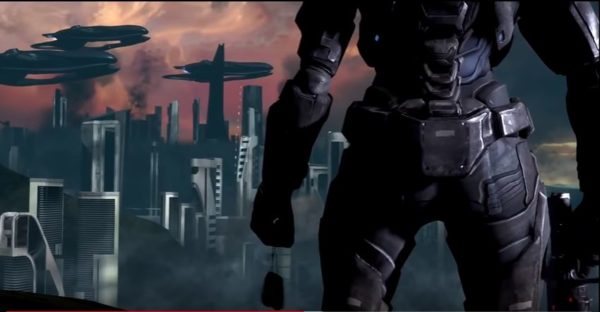
I wanted to bring all of this up because gamers tend to face a lot of prejudice from the non-gamer, being told things like ‘video games are a waste of time’ and ‘all they do is melt your brain’, but I want to ask people to understand that they are so much more than just entertainment.
Sure, books and movies can all tell stories, present themes and build worlds, but none can do it the same way a video game can. A movie doesn’t give you the chance to participate in the story. A book cannot let you experience what your favorite characters are experiencing. And neither medium can combine immersion, music, visuals and writing to create an all encompassing experience in the way a video game can.
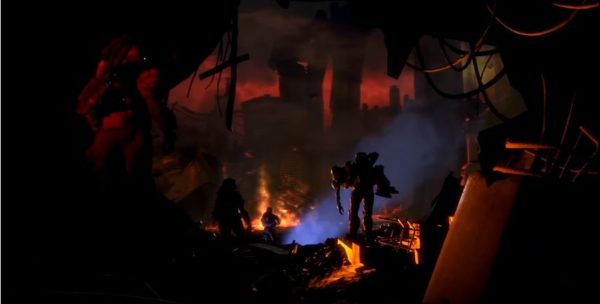
I know for a fact that if Portal 2 was a book, I wouldn’t have teared up at the ending. I know that is Hellblade was a film, I wouldn’t have felt as much for Senua. And I know that if Halo Reach were either, I wouldn’t consider it to be one of the greatest pieces of entertainment I’ve ever experienced. I think video games receive a bad wrap in the ‘main-stream’ due to the attention mindless online shooters like Call of Duty and Fortnite get. But not all games are like that and that is what I think most non-gamers do not understand.
Video games aren’t just time wasters anymore; they can build worlds and characters that feel like they are real, they can tell stories that take you on a roller coaster of emotions, and they can give you an experience that you could never experience anywhere else.
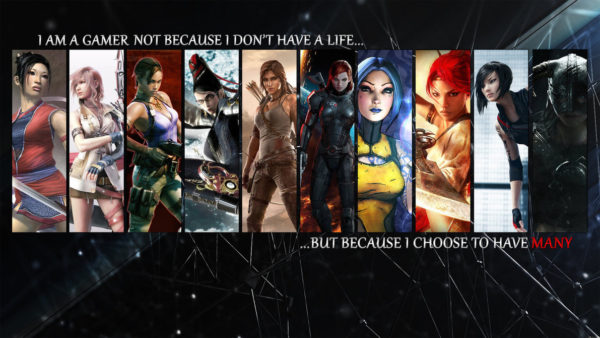
But that all said, I really just wanted to write this article because I wished to celebrate and share how video games have affected me. I think that games can be such a powerful medium when the talented developers behind them have the creative freedom to breath and try to push us, their audience, into challenging emotional head-spaces.
Nina 😉


